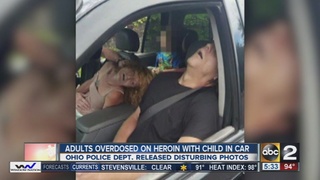Heroin and Pain Pill Addiction - there is a solution but nobody's talking about it

Traditional treatment for drug addiction isn't working .
Despite a variety of so called "evidence-based" treatments, we find ourselves in the deadliest drug epidemic in history. Nationwide, 142 people die every day from this epidemic.. At least one Long Islander dies every single day to an opioid overdose. Countless more die from cocaine and alcohol or from drug-related car accidents and drug-induced medical events like heart attacks and cirrhosis of the liver. That basically means that tomorrow morning some Long Island neighbor will likely wake up to discover that their loved one suffered a fatal overdose. And that they'll be forever broken - as the ripples of drug addiction touch those far and wide.
At one point early on, traditional treatments for the disease of addiction were successful for a lot of people.
But it's different today. The drugs are different - more powerful. Children as young as 10 or 11 are trying drugs for the first time, in part to escape the multitude of pressures they're under today. And they're moving on quickly to more powerful, deadly substances.
Drugs are cheaper and more affordable than ever. And addiction doesn't discriminate by gender, age, income level, education or intellect.

The government continues to condemn those addicted to illicit drugs, to life long sentences of being dependent on different, legal drugs that generate money for drug makers and governments as well as jobs for the individuals who dispense them. It's Methadone - a replacement opioid we've been using since the 1970s - that we continue to disseminate to people whose brains were hijacked by Heroin or opioid pain pills. Or the newer replacement drug Suboxone which is more addictive than heroin and harder to "get off of."
We know now that in most cases, there's an untreated or undiagnosed mental health issue underlying addiction that must be treated simultaneously to the drug dependence. And that to be effective, any treatment must address the physical, mental and spiritual aspects of the diseased person.
But in most cases, we're still not doing that. And we're not letting people know about a new, non-narcotic tool that's having success around the country - in areas that piloted a program based on that tool only in its criminal justice systems.
Many "Addictions" professionals know about this non-addictive medication treatment for alcohol and opioid addiction but are not letting their clients know about it as a good alternative to the long-used replacement drugs.
It's called Vivitrol and it's a monthly injection administered by a medical professional that reduces or eliminates the cravings for alcohol or opioids and blocks the user from getting high or feeling the drug's euphoric effect. It allows the brain to quiet down and begin healing so that people can stop using and begin recovering.

Look it up. Do the research. It's a life saving opiate-receptor blocker and its $1,300 cost is covered by private insurance and Medicaid. In conjunction with wraparound services including counseling and therapy, it's had great success.
and it will continue to save lives and get people clean if we continue to let people know about it and where they can get it.
We do recover. There is a solution.
And next we'll explore why people aren't talking about it.
out for now
I have heard of this stuff, and it seems to work. Anything that helps is worth the cost...
Excellent information. I look forward to hearing more about solutions that are changing lives.
Thanks for sharing! Saving lives one day at a time!